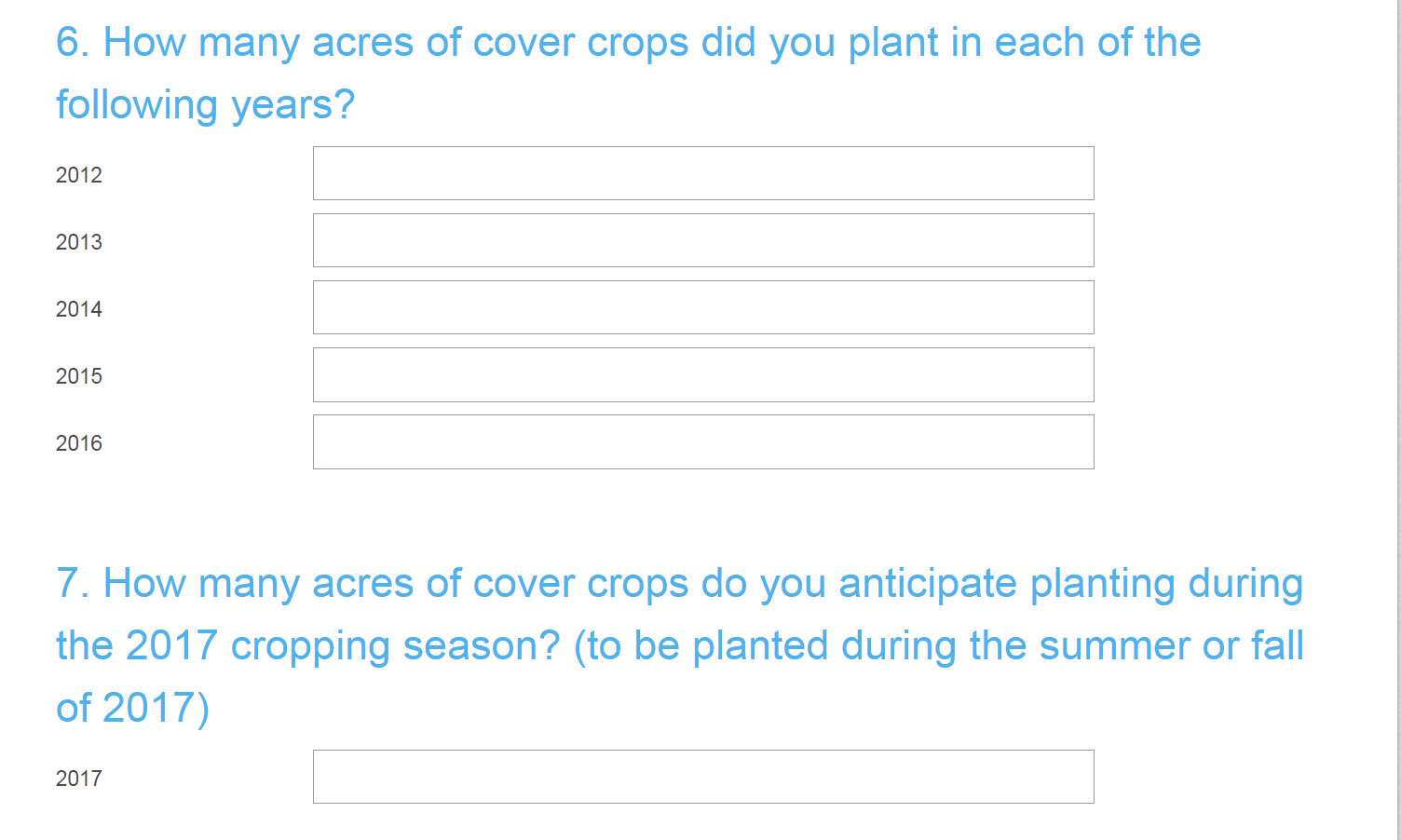Even growers without cover crops are asked to participate
By Diego Flammini
Assistant Editor, North American Content
Farms.com
American farmers are being encouraged to take a survey on cover crops –whether they grow them or not.
The anonymous survey asks questions like how many years of experience a farmer has with cover crops, what kind of tillage is performed on the farm and the number of cover crop acres a grower plans to plant.
The survey is conducted by the Conservation Technology Information Center (CTIC), the United States Department of Agriculture’s Sustainable Agriculture Research and Education program, and the American Seed Trade Association.
The collected information is then used in a variety of ways.
“Results from the survey help guide policy, research and education on cover crops …,” Chad Watts, project director at CTIC, said in a release.

“This survey provides us with a great perspective on why farmers do or do not plant cover crops, what they expect to gain from the practice, and what their concerns are.”
And cover crops appear to be paying dividends for farmers, according to survey data from 2016.
“Farmers reported modest yield gains in both corn (3.4 bushels per acre) and soybeans (1.5 bushels per acre) following the use of cover crops. (They) indicated that the popular practice of planting a cereal rye cover crop before soybeans had a positive effect on both yield and broadleaf weed control for a majority of respondents (2,020 farmers across 48 states),” the 2016 survey summary says.
Corn yields rose an average of 3.7 bushels per acre following cover crops, and soybean yields increased 2.2 bushels per acre, according to data from the 2015 survey.
Producers have until May 31, 2017 to complete the survey. Those who do can enter a draw to win a $100 gift card.